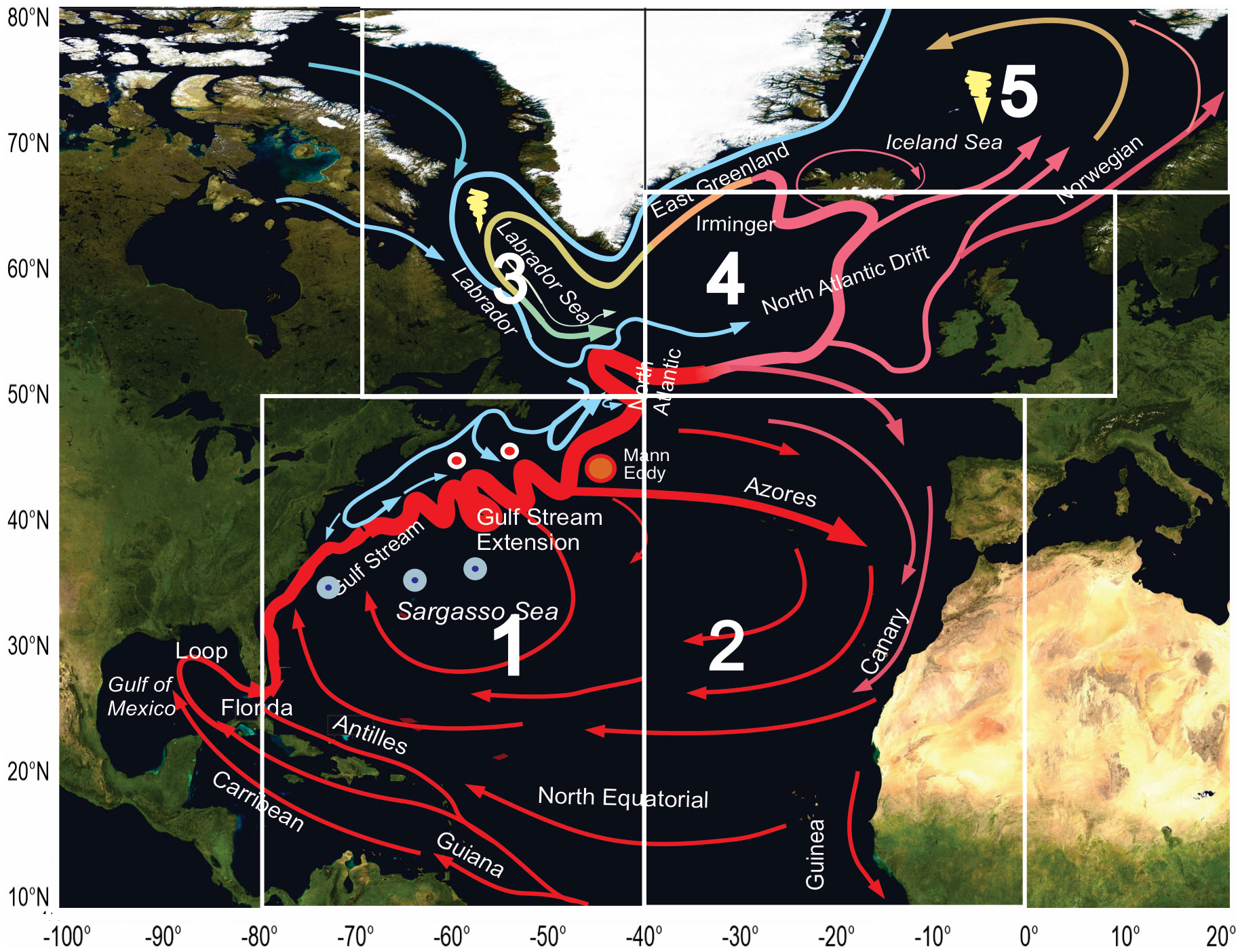The Atlantic Meridional Overturning Circulation (AMOC) has slowed substantially since the mid-90s, a new study reveals. AMOC is an essential component of the systems that keep the Earth’s regional climates in balance. Without it, Europe could suffer colder winters while the tropics could heat up even faster. Climatologists have identified AMOC as one of the most vulnerable parts of the planetary heat balance for decades, but uncertainty has remained about how much change is taking place.
Ocean currents move quantities of water that make the world’s largest rivers seem small by comparison. In the process, they redistribute heat, as well as helping oxygenate deeper waters. The factors causing these currents vary, with physical processes such as the Coriolis force having an important influence. AMOC, however, is primarily the result of salty water left behind when sea ice forms sinking to the depths, leaving space for tropical waters to flow in.
Many climate models suggest that as melting ice from Greenland floods the North Atlantic with cold, but very fresh, water, it will sit above more salty water instead of sinking. Without an impulse to the depths, water will stop moving south in the deep ocean, and the Gulf Stream will flow more weakly. However, the Atlantic is a large place, and tracking the movements of this much water is hard, particularly since the data gets patchier the further back you go. Measurement efforts consistently show AMOC is weakening, but disagree on how much.
Dr Alexey Mishonov of the University of Maryland and co-authors have measured the strength of AMOC in a new way. They studied temperatures and sea surface heights across the North Atlantic using extensive databases. Salinity and density measurements were also used where they are available, providing a more comprehensive picture than previous efforts.
“It is shown that although the entire North Atlantic is systematically warming, the climate trajectories in different sub-regions of the North Atlantic reveal radically different characteristics of regional decadal variability,” the authors write. Specifically, subpolar regions are warming more slowly than those in the subtropics and even off Norway. Since in general global warming heats the poles faster, that’s an indication of reduced transport of warm water out of the tropics.
The team found patterns consistent with AMOC having remained stable from 1955, when widespread measurements started, to 1994. Since then, however AMOC has slowed. “There is also a slowdown of the thermohaline geostrophic circulation everywhere in the North Atlantic during the most recent decade,” the authors note.
AMOC involves so many currents and subcurrents it is hard to put a single figure on the changes, but the authors note a 20 percent reduction in the warm water transported by the Gulf Stream.

The currents of the North Atlantic are very complex, contributing to the difficulties of measuring its changes over time.
“If AMOC slows down, the heat exchange will be reduced, which in turn will affect the climate, causing hot areas to get hotter and cold areas to get colder,” said Mishonov in a statement. Most climatic changes have at least some beneficiaries, but this one is likely to be bad for almost everyone affected.
A paper published last month detected warning signs of an impending AMOC collapse. Mishonov and co-authors’ work looks backwards not forwards, and they explicitly state it does not confirm that study. Nevertheless, it arguably makes it more plausible.
An additional fear in regard to AMOC failing is of oxygen depletion causing the collapse of deep-water ecosystems. This remains a genuine threat, but one recent study raised the possibility other sources of oxygenation could be stronger in a warming world, partially offsetting this aspect of AMOC’s weakening.
The possibility of AMOC’s collapse attracted public attention when it was the centerpiece of the Hollywood blockbuster The Day After Tomorrow. Like most disaster films it took something real and exaggerated it to ridiculous proportions. “Of course, most climate scientists do not share these Hollywood fantasies, and no one inside scientific communities believes anything remotely similar can happen,” Mishonov said. “However, most do believe that substantial slowing of AMOC might result in significant climate change that cannot be foreseen and predicted. Therefore, increased interest in AMOC functionality is fully warranted.”
The study is published open access in Frontiers in Marine Science.
Source Link: One Of The World’s Most Important Ocean Currents Really Is Slowing Down